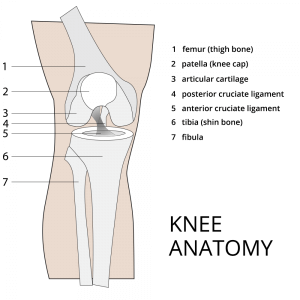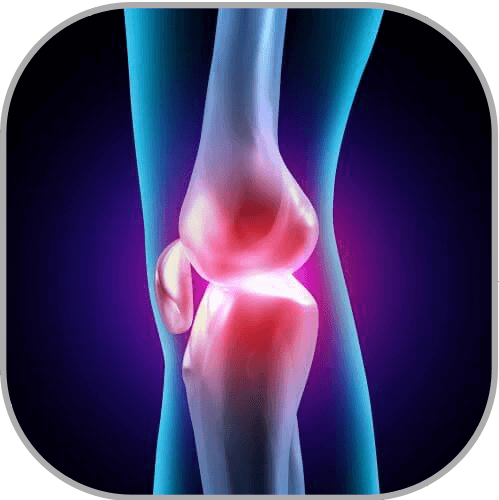 The largest joint in the human body, the knee connects the lower leg and thigh and plays a major role in carrying the body weight in both horizontal and vertical directions. The knee is made up of many important components— including bones, cartilage, ligaments, and tendons—making it susceptible to a variety of injuries.
The largest joint in the human body, the knee connects the lower leg and thigh and plays a major role in carrying the body weight in both horizontal and vertical directions. The knee is made up of many important components— including bones, cartilage, ligaments, and tendons—making it susceptible to a variety of injuries.
Conditions and injuries affecting the knee can lead to pain, swelling, and instability. In many cases, knee injuries involve damage to more than one component and, without proper treatment, can lead to ongoing problems.
At the Joint Preservation Center of Towson Orthopaedic Associates, we work closely with each patient to create a personalized treatment plan to relieve pain, return range of motion, and prevent future joint deterioration.
Common Knee Conditions
ACL Tear
 The anterior cruciate ligaments (ACL) control the “back and forth” motion of the knee and are among the most commonly injured knee ligaments—especially among athletes. Often caused by suddenly stopping or changing direction, ACL tears cause pain, swelling, tenderness, and a loss of range of motion in the knee. According to the American Academy of Orthopaedic Surgeons, approximately half of all ACL injuries coincide with damage to other structures, such as the meniscus, articular cartilage, or other ligaments. Treatment options for an ACL injury depend on the severity of the tear, however, partial tears are uncommon, and surgery is often necessary to restore stability. If left untreated, an ACL injury can lead to further damage to the joint causing ongoing pain, immobility, and loss of strength. Be sure to contact your physician immediately if you are experiencing knee pain or instability.
The anterior cruciate ligaments (ACL) control the “back and forth” motion of the knee and are among the most commonly injured knee ligaments—especially among athletes. Often caused by suddenly stopping or changing direction, ACL tears cause pain, swelling, tenderness, and a loss of range of motion in the knee. According to the American Academy of Orthopaedic Surgeons, approximately half of all ACL injuries coincide with damage to other structures, such as the meniscus, articular cartilage, or other ligaments. Treatment options for an ACL injury depend on the severity of the tear, however, partial tears are uncommon, and surgery is often necessary to restore stability. If left untreated, an ACL injury can lead to further damage to the joint causing ongoing pain, immobility, and loss of strength. Be sure to contact your physician immediately if you are experiencing knee pain or instability.
Meniscus Tear
The meniscus is a rubbery piece of cartilage which helps cushion and stabilize the knee joint. A tear of the meniscus, like the ACL, is especially common among athletes and often occurs in conjunction with other knee injuries. Sudden meniscal tears are often caused by a forceful twist of the joint, however, degenerative tears are also possible in patients with weakened menisci. A torn meniscus can cause pain, stiffness, and a loss of range of motion. Without treatment, a piece of the cartilage could become loose and drift into the joint causing it to slip, pop, or lock.



